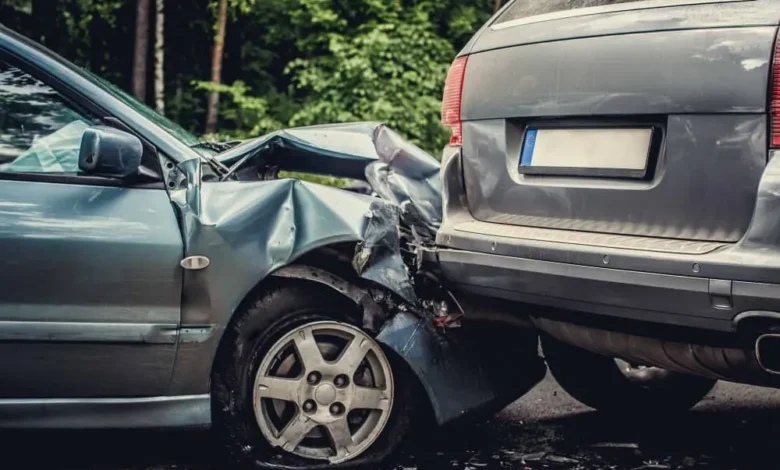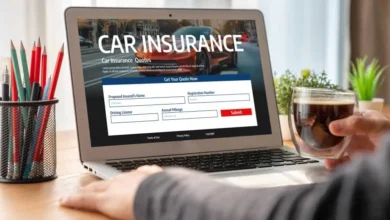What Happens If You Get Into a Car Accident Without Health Insurance?
Learn what happens if you're in a car accident without health insurance, the financial risks, and why having coverage is crucial for protecting yourself from high medical costs.

What Happens If You Get Into a Car Accident Without Health Insurance? Car accidents are stressful and sometimes life-altering events.
While car insurance is typically required for drivers in the United States, many individuals are unaware of the financial burden they may face if they are injured in a car accident and do not have health insurance.
The cost of healthcare in the U.S. is notoriously high, and without health insurance, a person could be left with overwhelming medical bills.
In this comprehensive guide, we’ll explore what happens if you get into a car accident without health insurance, the importance of having health insurance, and what car insurance policies can do to help.
We will also provide an overview of the potential costs associated with different types of injuries and explain why it’s crucial to be financially prepared.
What Happens If You’re Injured in a Car Accident Without Health Insurance?
If you are injured in a car accident and don’t have health insurance, you may find yourself in a difficult financial situation. Here’s what you can expect:
1. You Are Responsible for Your Medical Bills
Without health insurance, you are liable for all medical costs out of pocket. Even a minor car accident can result in injuries that require expensive treatment, such as emergency room visits, diagnostic tests, surgeries, and rehabilitation.
2. Medical Bills Can Accumulate Quickly
The cost of medical care in the U.S. is among the highest in the world, and even basic treatment can result in exorbitant bills.
Emergency care alone can run into thousands of dollars, and more severe injuries may require extensive hospital stays, surgeries, or ongoing care, all of which come with a hefty price tag.
3. Hospitals May Demand Payment Upfront
In some cases, hospitals and healthcare providers may demand payment or proof of ability to pay before providing certain types of care.
This can create a stressful situation for someone without health insurance, especially if they need urgent medical attention.
4. You May Be Sent to Collections
If you’re unable to pay your medical bills, the healthcare provider may turn your account over to a collections agency. This can negatively impact your credit score and make it difficult to secure loans or other types of credit in the future.
5. The Legal System May Get Involved
In some states, you can be sued for unpaid medical bills. If the medical provider takes legal action, you could face additional court costs, interest, and legal fees on top of the original medical debt.
Why Is Health Insurance Important?
Health insurance is essential to protect yourself from the financial devastation that can result from a serious injury. Here are some key reasons why having health insurance is critical:
1. Health Insurance Covers the Cost of Care
Health insurance helps cover the cost of medical treatment, including doctor visits, emergency room care, hospital stays, surgeries, and medications. Without it, even a relatively minor accident can lead to thousands of dollars in medical debt.
2. Peace of Mind
Having health insurance provides peace of mind. You won’t have to worry about the high costs of healthcare if you are injured. This allows you to focus on recovery instead of how you will pay for your care.
3. Access to Preventative Care
Health insurance often covers preventative services like check-ups and screenings. This can help catch medical issues early and prevent complications that could arise after an accident.
4. Discounts and Negotiated Rates
Health insurance companies negotiate discounted rates with healthcare providers. Without insurance, you’ll likely be charged the full rate, which can be significantly higher than what insurance companies pay.
The High Cost of Healthcare in the U.S.
The U.S. healthcare system is primarily privatized, and the costs associated with medical care are some of the highest globally. Below are the average costs for common injuries sustained in car accidents:
| Injury Type | Average Cost Without Insurance |
|---|---|
| Broken Bones | $10,000 – $15,000 |
| Traumatic Brain Injury | $50,000 – $100,000 |
| Spinal Cord Injury | $100,000 – $250,000 |
| Whiplash | $2,500 – $10,000 |
| Surgery | $20,000 – $80,000 |
| Emergency Room Visit | $2,000 – $4,000 |
These costs do not include follow-up care such as physical therapy, medications, or specialist visits, which can add thousands more to the total bill.
Car Insurance That Offers Health Coverage
While health insurance is critical, some car insurance policies offer personal injury protection (PIP) or medical payments coverage (MedPay) that can help cover your medical expenses after a car accident. Let’s look at these options:
1. Personal Injury Protection (PIP)
Personal injury protection (PIP) is required in some states and optional in others. It helps pay for your medical expenses, lost wages, and other costs related to injuries sustained in a car accident, regardless of who was at fault.
PIP coverage can be particularly helpful if you do not have health insurance, as it provides immediate funds for medical care.
2. Medical Payments Coverage (MedPay)
MedPay is similar to PIP but typically offers less extensive coverage. It pays for medical expenses resulting from a car accident, but unlike PIP, it does not cover lost wages or other expenses.
MedPay is optional in most states, but adding it to your policy can provide extra protection if you’re injured in an accident.
3. Auto Insurance Providers Offering PIP or MedPay
Several car insurance companies offer PIP or MedPay coverage. Some of the major providers include:
- Progressive
- GEICO
- State Farm
- Allstate
- USAA
These companies typically offer PIP or MedPay as an add-on to standard auto insurance policies, allowing you to customize your coverage to include protection for medical expenses.
What Happens If You Don’t Have Health Insurance and Are Found At-Fault?
If you’re found at fault in a car accident, the consequences of not having health insurance can be even more severe.
You will not only be responsible for your own medical bills but could also be held liable for the medical expenses of other individuals involved in the accident.
This is where having sufficient car insurance coverage, including liability insurance, becomes vital.
Here are some potential scenarios:
1. You Cause the Accident
If you’re responsible for the accident, your car insurance liability coverage will help cover the medical expenses of the other party involved, up to the policy limits. However, your own medical costs will need to be covered by your health insurance or out of pocket.
2. You’re Injured but Lack Health Insurance
If you’re injured in the accident and don’t have health insurance, you will need to rely on personal savings, loans, or credit cards to cover your medical bills.
The financial burden can quickly become overwhelming, especially if you require extensive treatment or surgery.
3. You Could Face Bankruptcy
Many individuals without health insurance who are injured in car accidents find themselves facing bankruptcy due to the insurmountable medical bills.
Without insurance, there are limited options for financial relief, and many are forced to declare bankruptcy to manage their debt.
Alternatives to Health Insurance
If you don’t have health insurance, there are a few alternatives to consider that may help alleviate the financial strain in the event of a car accident.
1. Short-Term Health Insurance
Short-term health insurance is an option for individuals who need temporary coverage. These plans usually have lower premiums but may not cover pre-existing conditions or offer as much coverage as traditional health insurance. However, short-term insurance can be a good stop-gap solution for those without employer-provided coverage.
2. Government Programs
For low-income individuals, government programs like Medicaid may offer assistance with healthcare costs. Medicaid provides health coverage for individuals and families with low income and can be a lifeline in the event of a car accident.
3. Health Sharing Programs
Health sharing programs, such as those offered by certain religious organizations, are another option. These programs pool members’ funds to cover medical expenses. However, they are not considered traditional insurance, and coverage may be limited.
Conclusion
Being injured in a car accident without health insurance can have devastating financial consequences. The cost of medical care in the U.S. is extremely high, and without coverage, you could be left with medical bills that far exceed your ability to pay.
Even minor injuries can result in thousands of dollars in medical expenses, and more serious injuries can quickly lead to debt or even bankruptcy.
To protect yourself, it’s important to have health insurance, as well as car insurance that includes personal injury protection (PIP) or medical payments coverage (MedPay).
These types of coverage can help ensure that you have the financial resources to pay for medical care if you’re injured in a car accident.
If you don’t have health insurance, explore alternative options like short-term health plans, government programs, or health sharing programs to provide some level of protection.
Ultimately, the best way to avoid financial ruin after a car accident is to be prepared with adequate health and auto insurance.
Frequently Asked Questions (FAQ)
Q: Can I use my car insurance to cover medical expenses if I don’t have health insurance?
A: Yes, if you have personal injury protection (PIP) or medical payments coverage (MedPay) on your car insurance, these policies can help cover medical expenses related to a car accident.
Q: What happens if I can’t pay my medical bills after a car accident?
A: If you’re unable to pay your medical bills, you could face debt collection, legal action, or even bankruptcy. Some hospitals may offer payment plans, but without insurance, it’s important to explore other financial assistance options.
Q: How much does a hospital stay cost in the U.S. after a car accident?
A: The cost of a hospital stay depends on the severity of the injuries. A minor injury might cost a few thousand dollars, while a severe injury requiring surgery or long-term care could cost upwards of $100,000 or more.





